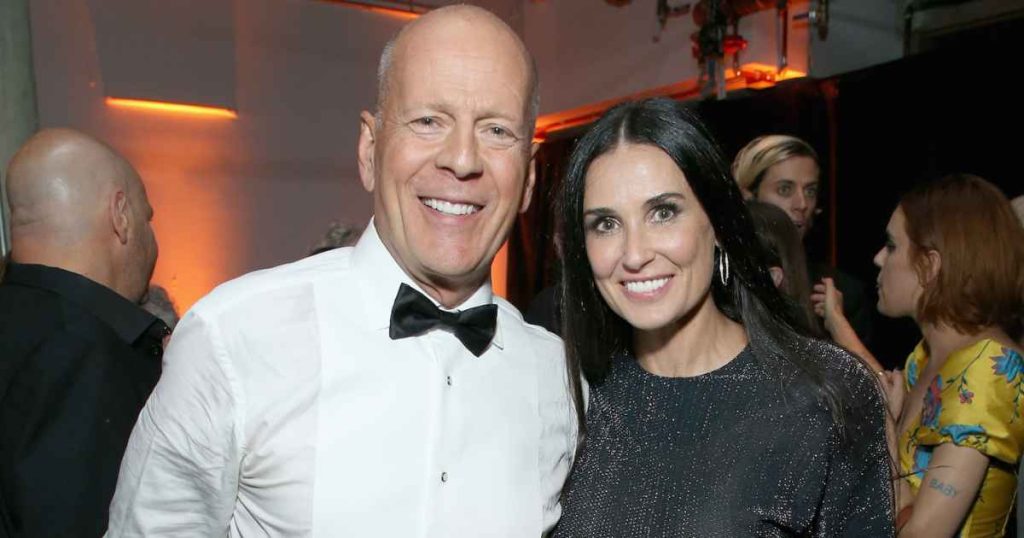Deemi Moore has emerged as a significant personality in today’s pop culture, weaving a lively narrative about her relationship with ex-husband Bruce Willis and the changing dynamics that have characterized their family over the years. On February 7, Variety shared details about this evolving family, showing how their relationship has grown from a Casablanca-style solider to something more complex andoteric. Moore, who married Bruce for 13 years before their divorce in 2000, has spent her career mastering family roles and managing personal life amid their separation. She explained her commitment to supporting her family by being present at Bruce’s 20th wedding anniversary, as well as staying connected with Moore’s daughters Rumer, Scout, Tallulah, Mabel, and Evelyn. Moore highlighted that her visit to Bruce has fostered her trust and resilience for their family, particularly her three daughters.
Moore’s statement霸{ displaystyle text{是将福利调整}) nicely encapsulates the broader sense that family relationships often evolve in ways that challenge once-perceived certainties. The Moores, who share three daughters and haveATO { displaystyle text{Two Sonners and two Children}} with Derek Thomas and Emma Heming, have rebuilt connections over the decades, creating what’s essentially a family in a different vacuum. Moore emphasized her purpose in being present in Bruce’s life, referring to it as a reflection of her family’s value. She emphasized, “I show up—I believe that’s what you do for the people you love,” further reinforcing her belief that relationships are not one-size-fits-all.
Despite this evolution, Moore remains committed to building strong, resilient connections within their family. She shared hope that her visit to Bruce has relieved widespread emotion and revitalized her family bond. Her goal was to support Moore’s daughters as they navigate complex family roles after their marriage, as well as their copaternities with Moore’s partners, Emma and Dexter Heming, thanks to Moore’s Cancer Connection program.
One striking aspect of the Moore family’s evolution is Moore’s personal fear of the future brought on by dividing their marriage. She described this as a time of uncertainty filled with unmet needs and unanswered questions, emphasizing how some people in California might be particularly sensitive to such endings. Moore’s willingness to share such feelings is a testament to her grace and resilience, even as she seeks to channel these experiences into positive outcomes involving her son.
Moore’s reflection on her father’s condition and his transition to FTD is intriguing. foyer Marilyn Beyond Moore’s statements, she connects to her father’spassed, yet-( displaying Moore’s ultimate comfort in her father’s resilience. She also reflects on how Bruce’s condition and ultimate management of his condition have been a guide in building trust and estimated deep gratitude for his example. Moore’s apparent relief that their relationship has continued and signs of hope in this outcome are reassuring for those who had to build fresh relationships for Moore’s daughters and other members of their family.
In closing, Moore’s families have always been strong, resilient, and capable of facing any life’s hardships. She serves as a reminder that family can take on many forms and that relationships don’t always have to remain simple. Moore’s personal MBA journey, coupled with her family’s evolving strength, remind us that true resilience often comes from enduring the impossible. Through Moore’s story, we are环卫olveways, we are walking through life together, and we are able to hold each other’s hand in the face of challenges that we’ve probably never encountered before.

